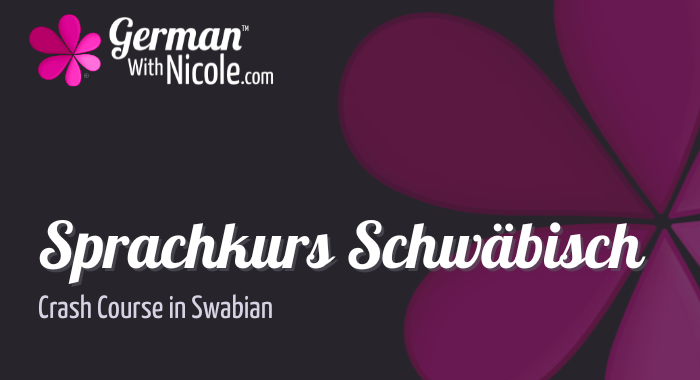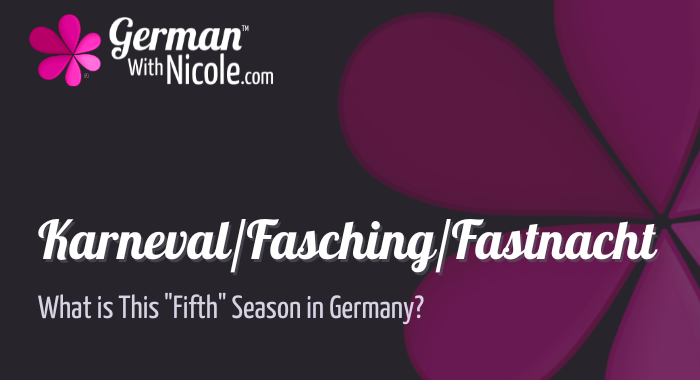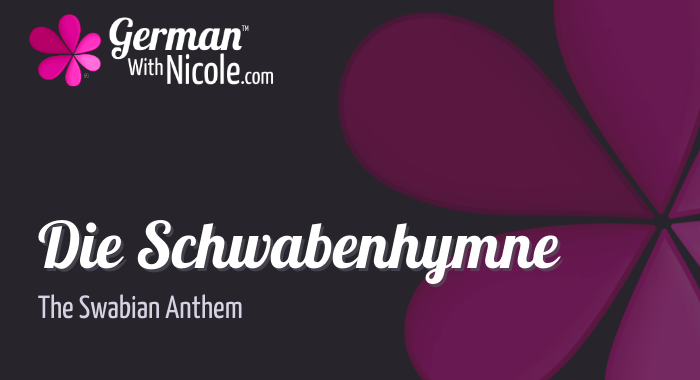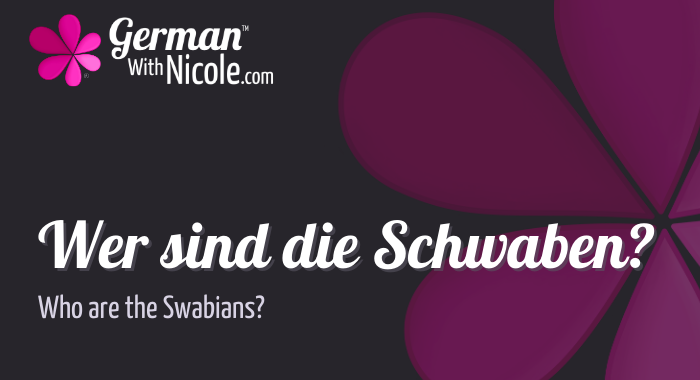Good ol'-fashioned RSS Feed
das Blog
Typical German Music: Schlager!
Schlager is a form of music unique to German--it's its own genre. Comprised mainly of catchy tunes (that lead to ear worms), straight-forward forms and uncomplicated texts, you can hear Schlager at Oktoberfest, pretty much any Karneval celebration anywhere in Germany, and of course on German television.
You can easily dance to it and it's a good bet that you can dance with your kids to it and not worry about the texts.
A lot of Schlager shows are shown on TV in the evenings and are recorded p…
It's OK to Cry When You Don't Understand: 3 Ways to Bust Through
Students of foreign languages sometimes get upset when they get frustrated. They get really frustrated and really upset because what they want most is to speak a foreign language, they've done their homework, they've studied, and somehow the pieces just don't fit together or the pieces they want don't come together when they speak.
It's a hard-core experience.
Some students think I learned German easily because I learned it quickly--it was not easy and my German skills were and are hard-won with…
Visit the German Settlement Cemetery in Hudson, Wisconsin
Last week you learned about the German Settlement in St. Croix County and the bake house/smoke house that is still used for bread baking demonstrations. Not far from there is the German Settlement Cemetery. Be sure to visit it when you head out for the bread bake. It's set beautifully and is a peaceful reminder of where so many of us have come from (another place) and connects you with another time.
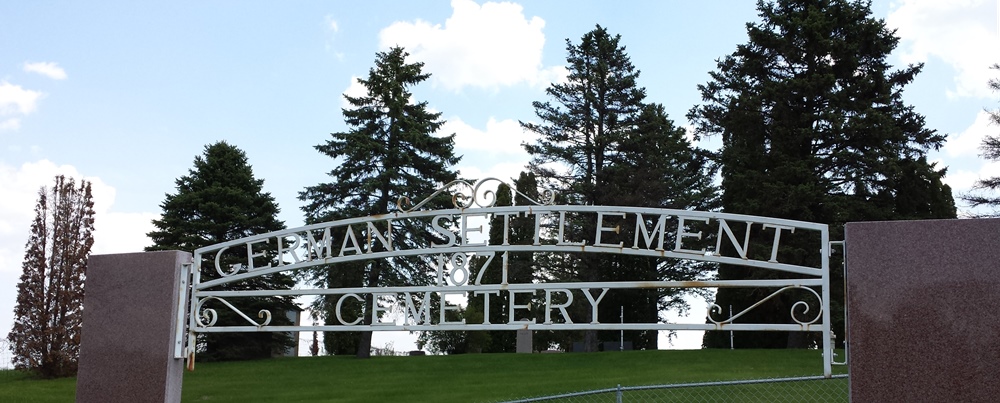
As the sign implores, it's a place to "Reverently read the old gravestone names of those pione…
Live Demonstration: Brick Oven Bread Baking. June 1, 4-6 p.m.
The German Settlement Heritage Society of Hudson, Wisconsin is hosting a bread bake at the restored brick oven on June 1, 2014 from 4-6 p.m.
The restored brick oven is at 837 County Rd. N, Hudson, WI 54016 (5 miles east of Hudson, WI) and is on the site of the first German settlement in the area, the Nicholas Schwalen farm.
Nutrition and Outreach Specialist Ross Safford will be conducting the demonstration with his humor, dough-tossing techniques, and stories of baking bread.
Here are a few phot…
Sprachkurs Schwäbisch
Harald Schmidt, who has since given up his late night spot on German television, is to Germany was Letterman and Leno were to the US. He's also a Schwab, he's an incredible mimic and can reproduce pretty much any German dialect.
Here his Sprachkurs (Crashkurs) Schwäbisch.
If you're not yet familiar with Swabian, here's a comparison that should help you understand how it relates to German:
Swabian is to German as Creole is to North American English.
Swabian and German are related, but just as…
Karneval / Fasching / Fastnacht
Karneval is known as "die fünfte Jahreszeit" --the 5th season. It's known as Karneval, Fastnacht, or Fasching in many places in southern Germany.
Karneval is a big deal.
Their costumes are pretty fantastic, one of Heidi Klum's favorite things, and their costumes are no exception at the parade on Rosenmontag. But let's back up a few days and a few months to give you the best idea of Karneval.
It begins on November 11th at 11:11 a.m. because 11 is known as the "narrische Zahl," the fool's nu…
Die Schwabenhymne
As a follow-up to yesterday's post Wer sind die Schwaben?, here's a wonderful little song, completely in Swabian and entrenched in the Swabian culture.
A few helps for understanding what they're singing:
-Swabians are really frugal, so frugal in fact, that they drop the final 'n' on a lot of words. Thus "Schwabenland" becomes "Schwabeland." "Mein" becomes "Mei." An exception to this is verbs and the final 'n' becomes a 't,' thus "sparen" (to save) becomes "sparet."
-"Wir" is pronounced as "mi…
Who are the Swabians?
Who are the Swabians?
The Swabians are the people of Württemberg, which is part of the state of Baden-Württemberg in southern Germany. (The folk of the area of Baden are Badisch and their dialect is different.) Each area of Germany has its own characteristics and peculiarities, however since I spent a lot of time there, it's worth spending a bit of time getting to know these hard-working folk. They do not speak what you normally know of as "high German*," but they speak Swabian. It's a dialect …
Famous People Speaking German: Sandra Bullock
After the Grammy Awards last night one of my German students Facebooked me and proclaimed, "Sandra Bullock speaks German!" Apparently Sandra Bullock's mother was a German opera singer and Bullock grew up in Nürnberg and studied ballet and vocal arts and even sang in her mother's opera productions.
What makes perfect sense and is astounding at the same time is Bullock's German accent--perfectly representative of the area she grew up in.
Here's a video of Bullock accepting a Bambi award, an inte…
How to Create the Weil Sentence Structure
The Weil sentence structure is a tough one for English speakers. We say "because I said so," but the Germans say "weil ich es gesagt habe," or (translated directly) "Because I so said!"
It's the exact opposite way in German. The verbs go all the way at the end.
Although Germans are, at least in the media, losing this construction faster than the ice caps are melting, there is one almost-guaranteed compliment you will receive when you can say this properly. A German will hear it and say to you,…
Categories
- A1 (70)
- A2 (55)
- B1 (47)
- B2 (24)
- C1 (22)
- Deutsch lernen (82)
- Einkaufen (15)
- Essen (12)
- Grammatik (24)
- Hören (14)
- Landeskunde und Kultur (50)
- Lesen (11)
- Musik (5)
- Nachrichten (4)
- Podcast (66)
- Pronunciation (3)
- Schreiben (4)
- Schwäbisch (4)
- Spiele und Spaß (Games and Fun) (12)
- Sprechen (12)
- Vokabeln (41)
- Video (13)
Would you like to hear about future German classes with Frau Warner?
With the E-Post, you'll receive information on German class registration and goings-on in German classes, all written by Frau Warner. You'll receive an email on Tuesdays, plus an extra email or two when class registration opens or there's something new.
If you use Gmail: please check your "promotions" folder.


